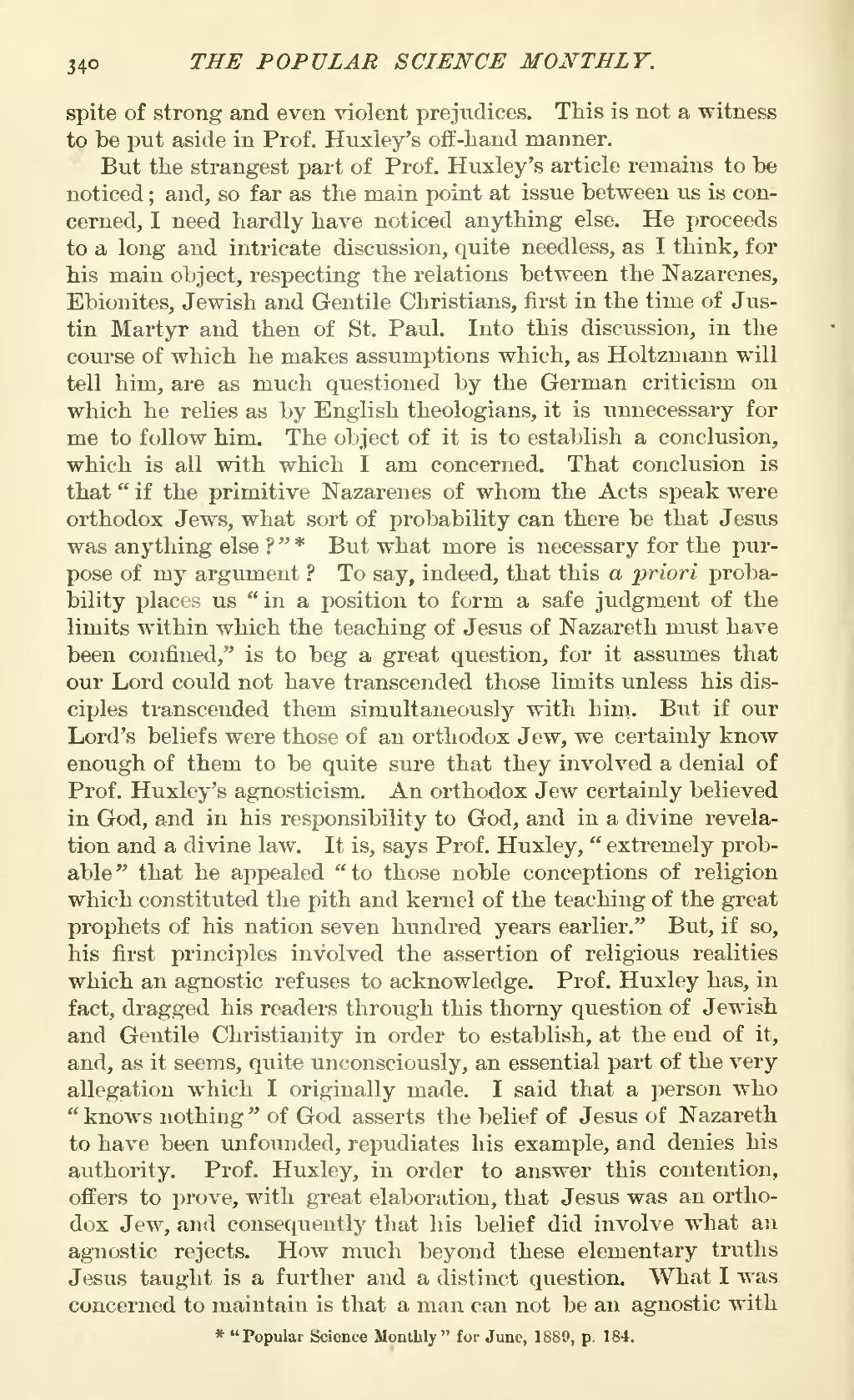spite of strong and even violent prejudices. This is not a witness to be put aside in Prof. Huxley's off-hand manner.
But the strangest part of Prof. Huxley's article remains to be noticed; and, so far as the main point at issue between us is concerned, I need hardly have noticed anything else. He proceeds to a long and intricate discussion, quite needless, as I think, for his main object, respecting the relations between the Nazarenes, Ebionites, Jewish and Gentile Christians, first in the time of Justin Martyr and then of St. Paul. Into this discussion, in the course of which he makes assumptions which, as Holtzmann will tell him, are as much questioned by the German criticism on which he relies as by English theologians, it is unnecessary for me to follow him. The object of it is to establish a conclusion, which is all with which I am concerned. That conclusion is that "if the primitive Nazarenes of whom the Acts speak were orthodox Jews, what sort of probability can there be that Jesus was anything else?"[1] But what more is necessary for the purpose of my argument? To say, indeed, that this a priori probability places us "in a position to form a safe judgment of the limits within which the teaching of Jesus of Nazareth must have been confined," is to beg a great question, for it assumes that our Lord could not have transcended those limits unless his disciples transcended them simultaneously with him. But if our Lord's beliefs were those of an orthodox Jew, we certainly know enough of them to be quite sure that they involved a denial of Prof. Huxley's agnosticism. An orthodox Jew certainly believed in God, and in his responsibility to God, and in a divine revelation and a divine law. It is, says Prof. Huxley, "extremely probable" that he appealed "to those noble conceptions of religion which constituted the pith and kernel of the teaching of the great prophets of his nation seven hundred years earlier." But, if so, his first principles involved the assertion of religious realities which an agnostic refuses to acknowledge. Prof. Huxley has, in fact, dragged his readers through this thorny question of Jewish and Gentile Christianity in order to establish, at the end of it, and, as it seems, quite unconsciously, an essential part of the very allegation which I originally made. I said that a person who "knows nothing" of God asserts the belief of Jesus of Nazareth to have been unfounded, repudiates his example, and denies his authority. Prof. Huxley, in order to answer this contention, offers to prove, with great elaboration, that Jesus was an orthodox Jew, and consequently that his belief did involve what an agnostic rejects. How much beyond these elementary truths Jesus taught is a further and a distinct question. What I was concerned to maintain is that a man can not be an agnostic with
- ↑ "Popular Science Monthly" for June, 1889, p. 184.
